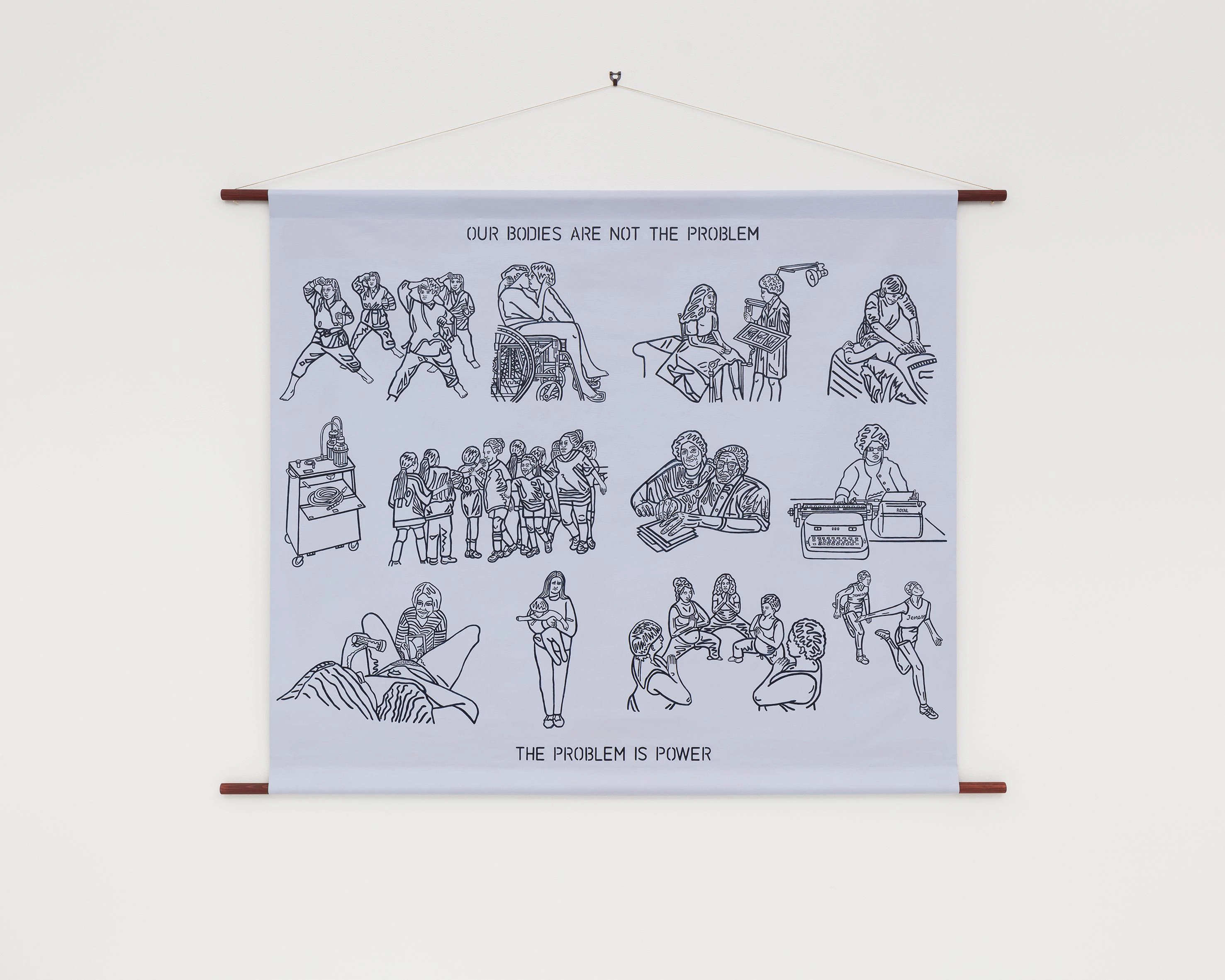
Our Bodies Are Not the Problem, 2022
acrylic on canvas with wooden dowels and string, 133 × 149.5 cm
‘Our Bodies are Not the Problem’, 2022
solo show at Maureen Paley, London
The exhibition brings together work from two of my most recent projects related to feminist history. They seek to make visible the sophisticated techniques of care, collaborative methods and forms of mutual education that have been developed and practised by feminist groups, especially in women’s spaces and activist organisations.
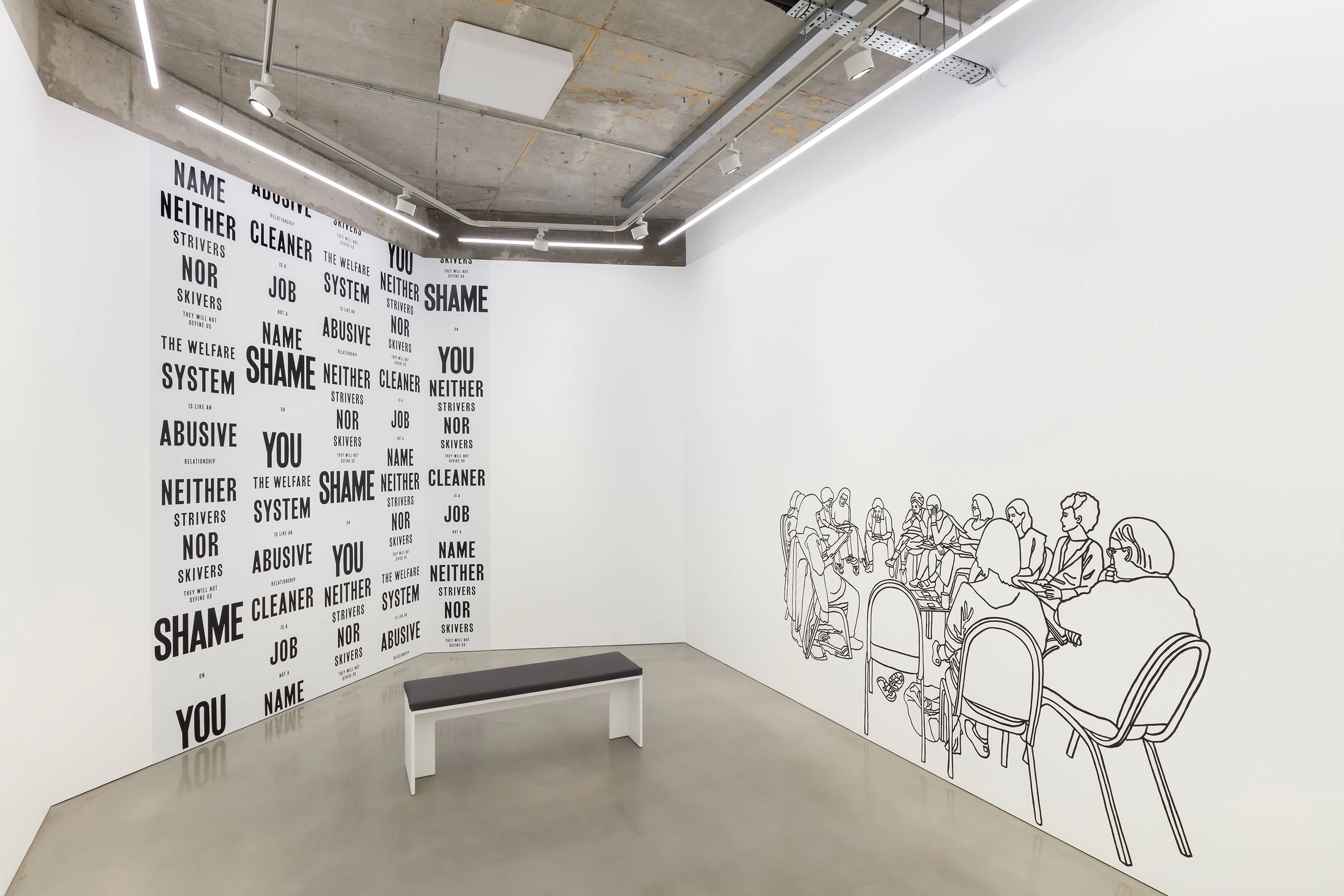
Our Bodies are Not the Problem exhibition view with sound, printed posters and wall painting, Maureen Paley, London, 2022
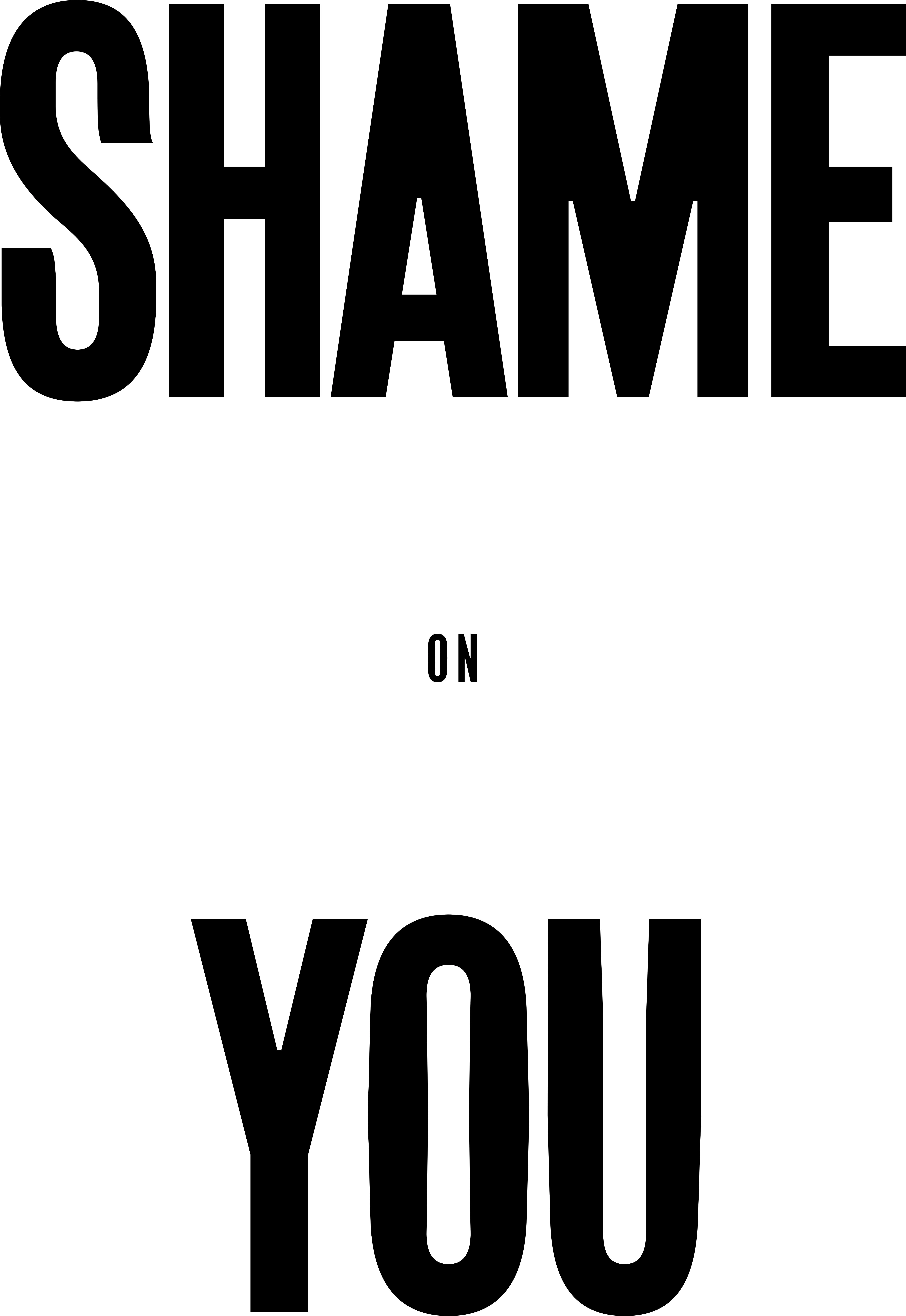
Shame on You, 2022
printed poster, 59.4 x 84.1 cm
Neither Strivers Nor Skivers, They Will Not Define Us, 2020
sound (20 minutes and 36 seconds, looped), series of wall mounted posters and a wall painting
Neither Strivers Nor Skivers, They Will Not Define Us brings together a series of artworks that grew out of my research into Sylvia Pankhurst (1882-1960), a socialist feminist and anti-fascist from the UK, alongside the current concerns of feminist organisers in East London. The project began when I found Pankhurst’s play Liberty or Death (c. 1913), in the archives of the Women’s Library in London, without reference to it ever having been performed or published. This script became the starting point for meetings with grassroot activists in women’s centres and community spaces in London, and a series of artworks, many of which are included in the exhibition.
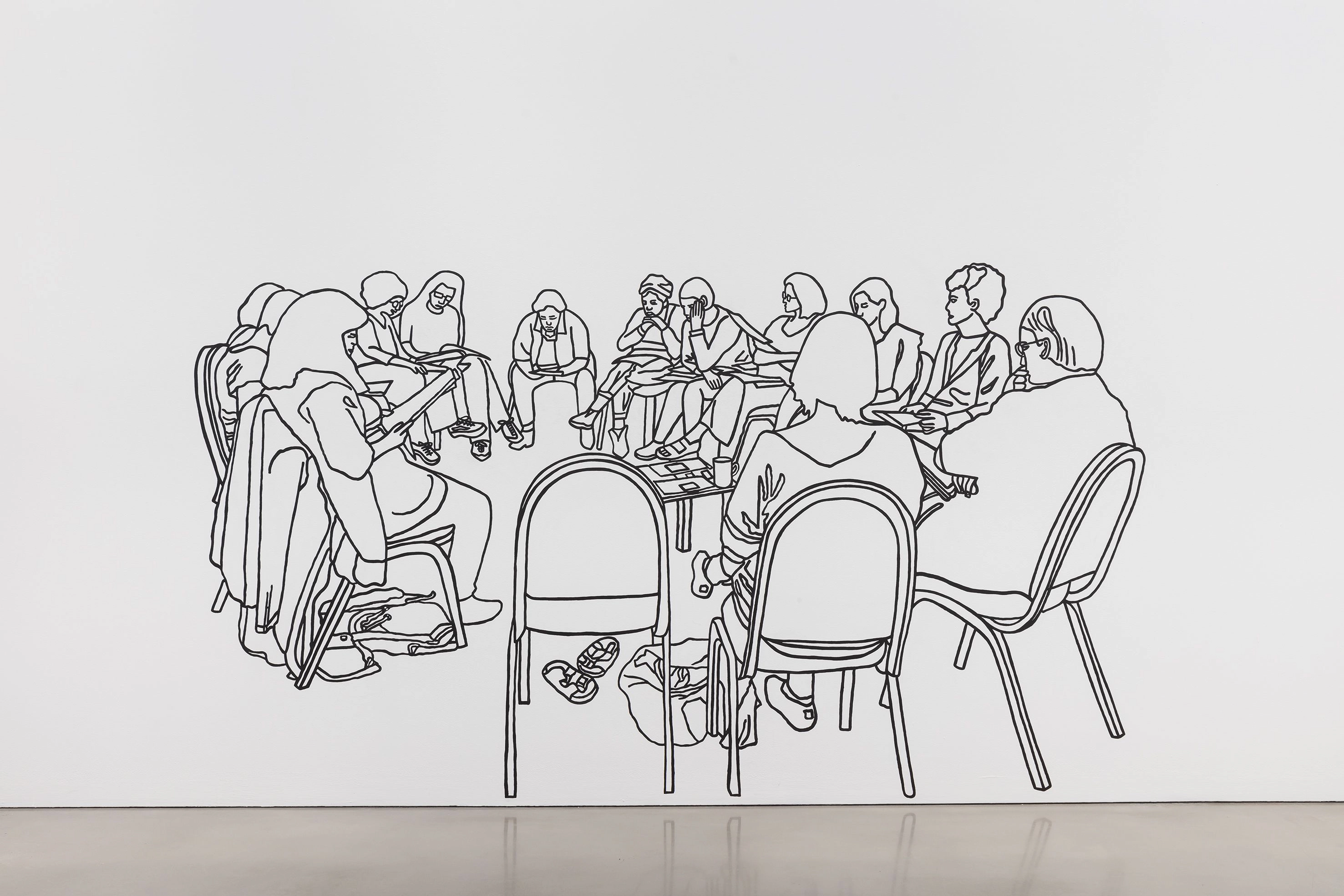
Our Bodies are Not the Problem exhibition view with wall painting, Maureen Paley, London, 2022
Neither Strivers Nor Skivers, They Will Not Define Us, 2020
sound, 20 min. 36 sec.
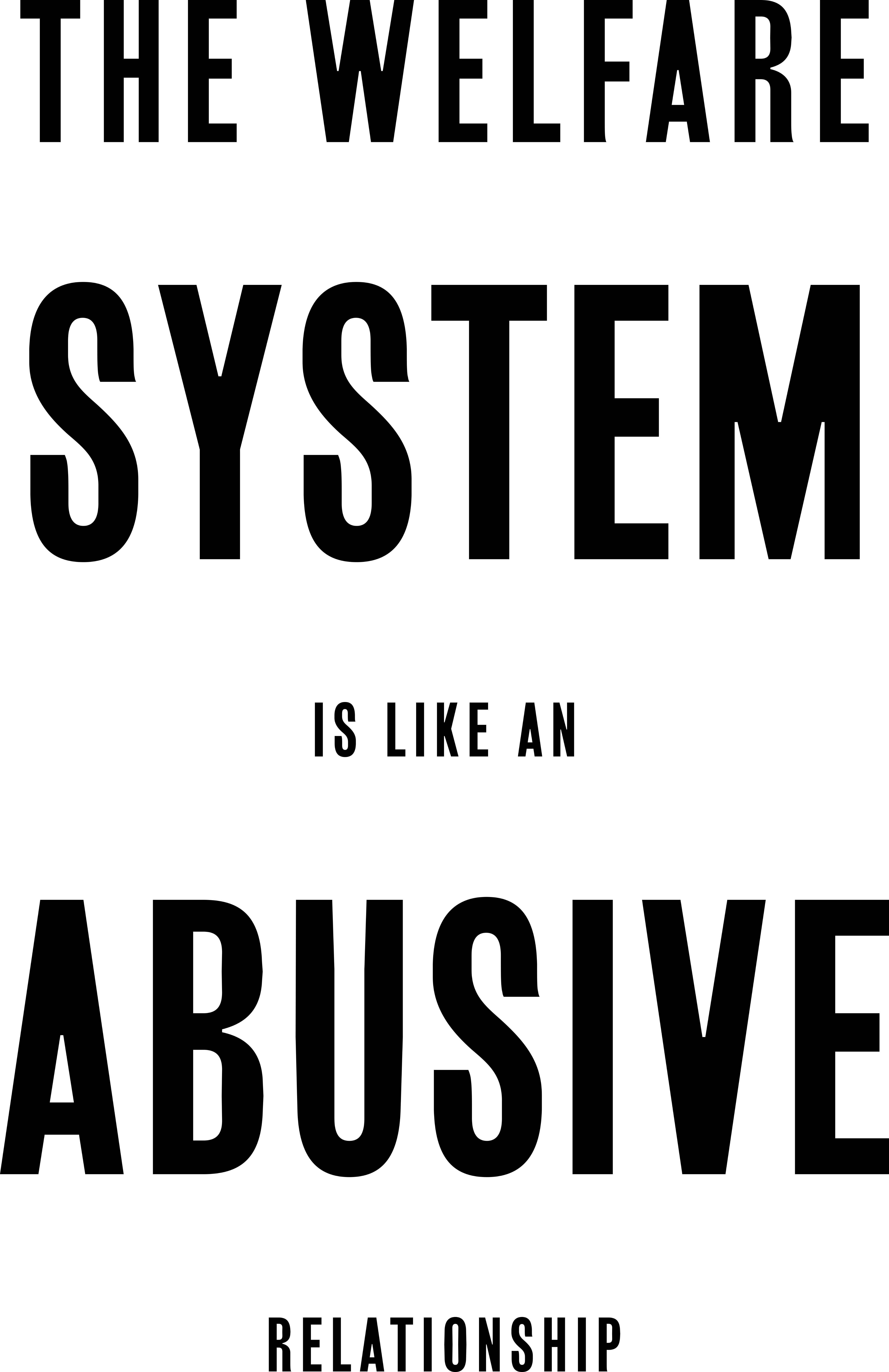
The Welfare System is Like an Abusive Relationship, 2022
printed poster, 59.4 x 84.1 cm
In the sound work we hear a montage of female voices describing their daily lives. They detail the return of what seem like nineteenth-century living conditions: the violent effects of the British government’s policies of austerity – which have pushed a disproportionate number of women into poverty since the financial crisis of 2008 – and the ‘hostile environment’, which has fuelled anti-immigrant feelings in the UK. Forced into unpaid care work, or struggling with a punitive benefits system, precarious housing conditions, racism and detention, the women turn to protest. The experiences of police intimidation that follow, underlines the violence with which those in power continue to respond to struggles for equal rights. The networks of care and solidarity that they create, enable them to change their situations and challenge the status quo. Accompanying the women’s voices are a series of posters on the walls of the gallery, showing bold black-and-white slogans based on their words, like newspaper headlines.
With thanks to Crossroads Women’s Centre and Focus E15 Campaign.
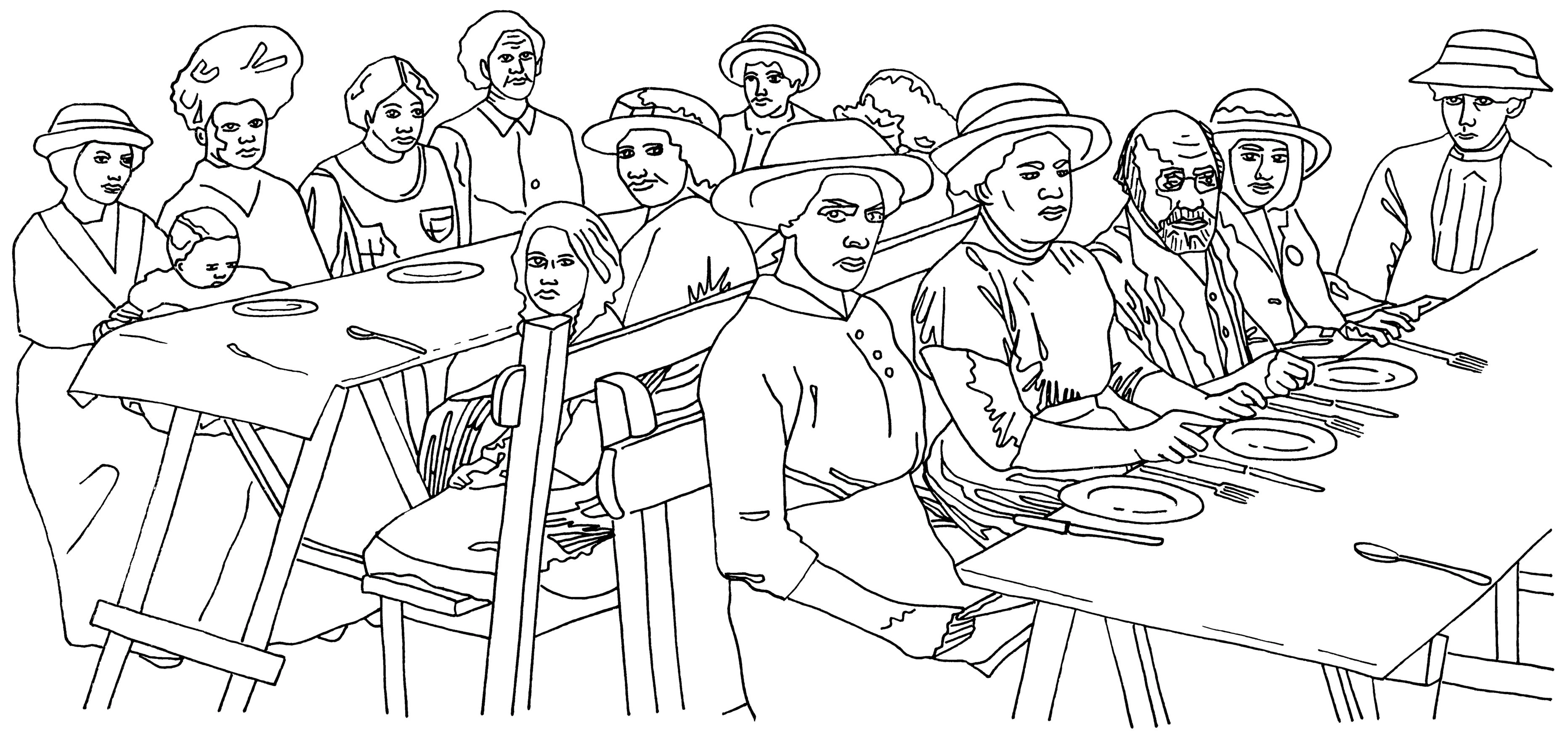
East London Federation of the Suffragettes – Cost Price Restaurant c. 1913, 2020
ink on paper, 29.7 x 42 cm
East London Federation of the Suffragettes, 2020
ink on paper drawings
Accompanying the sound piece are a series of drawings which show the different activities of the East London Federation of the Suffragettes (ELFS). The group was founded by Sylvia Pankhurst in 1913, in collaboration with many working-class women from the East End of London, and eventually evolved into being the first communist party in the UK. In a converted pub, whose name was changed from The Gunmaker’s Arms to The Mothers’ Arms, the ELFS provided free specialist healthcare for women and children, a nursery run by a trained nurse, and a kindergarten that used progressive Montessori techniques focused on developing the creativity of the young. They also ran a network of women’s centres in East London; cost-price restaurants, provoking a discussion about the unaffordability of food to those on low wages; a co-operative toy factory; and a self-defence group called The People’s Army, to combat police violence at protests.
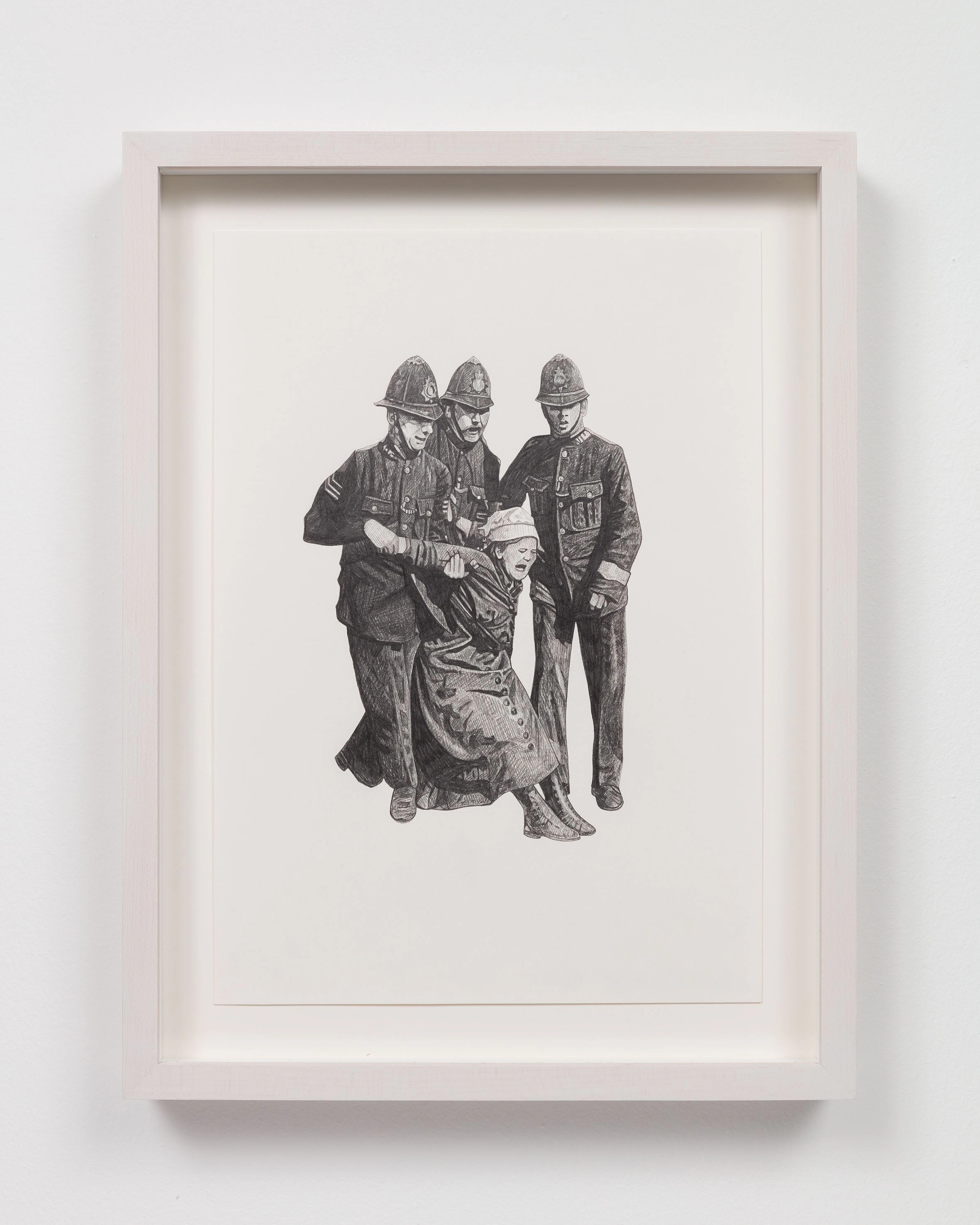
Arrest!, 2021
framed pencil on paper, 29.7 × 21 cm
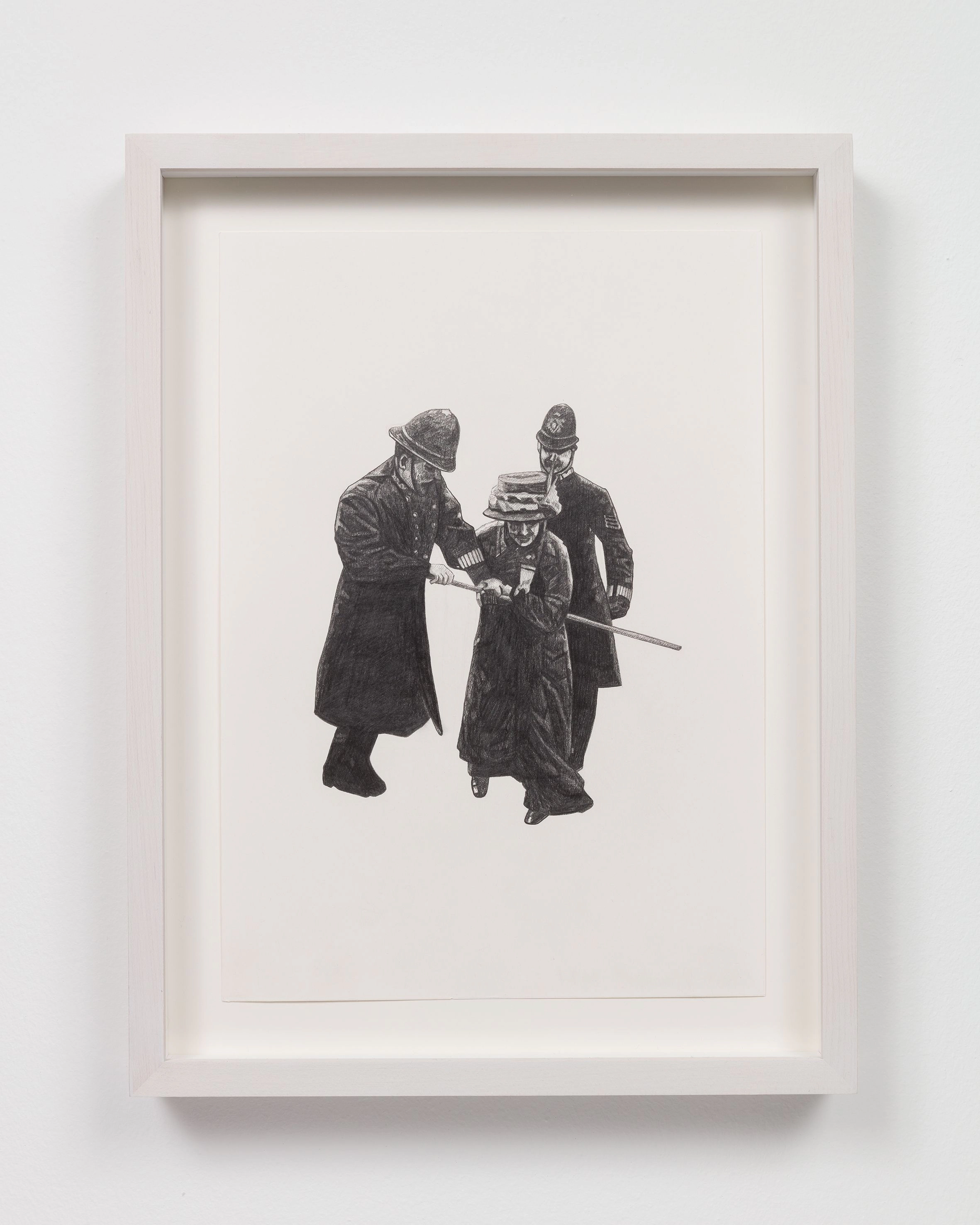
Arrest!, 2021
framed pencil on paper, 29.7 × 21 cm
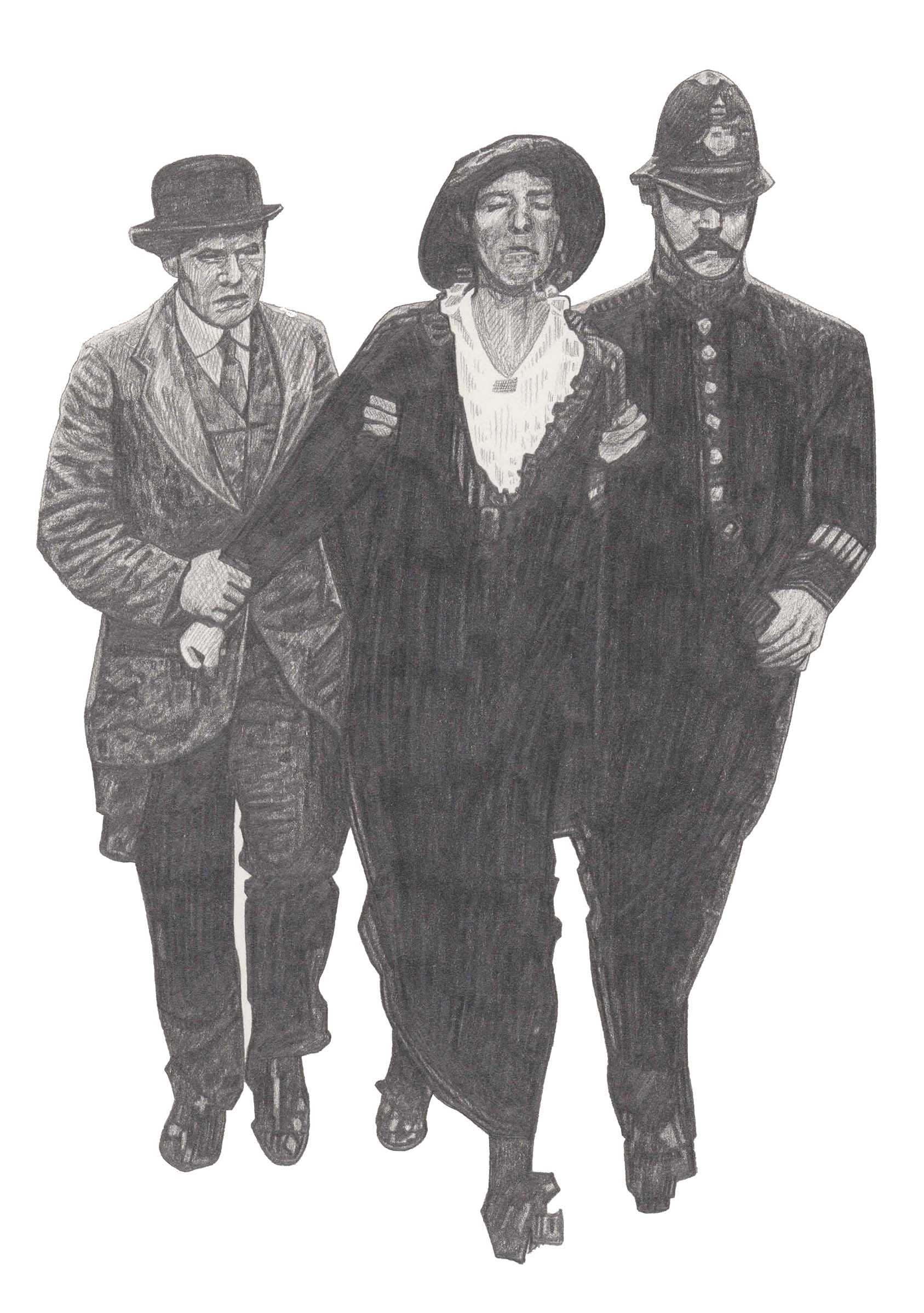
Arrest!, 2021
pencil on paper, 29.7 × 21 cm
Arrest!, 2021
pencil on paper drawings
The pencil drawings, which were first exhibited in the 34th Bienal de São Paulo, 2021, are based on early twentieth century press photographs of suffragettes being apprehended by the police. These women are shown in all their individuality, whereas the identities of the men are masked by their uniforms, and the actions they perform are indistinguishable from those of the police officers who violently break up protests today. This is an experience shared by many in the contemporary activist groups that I spoke with during my research for this project, underlining the violence with which those in power continue to respond to struggles for equal rights.
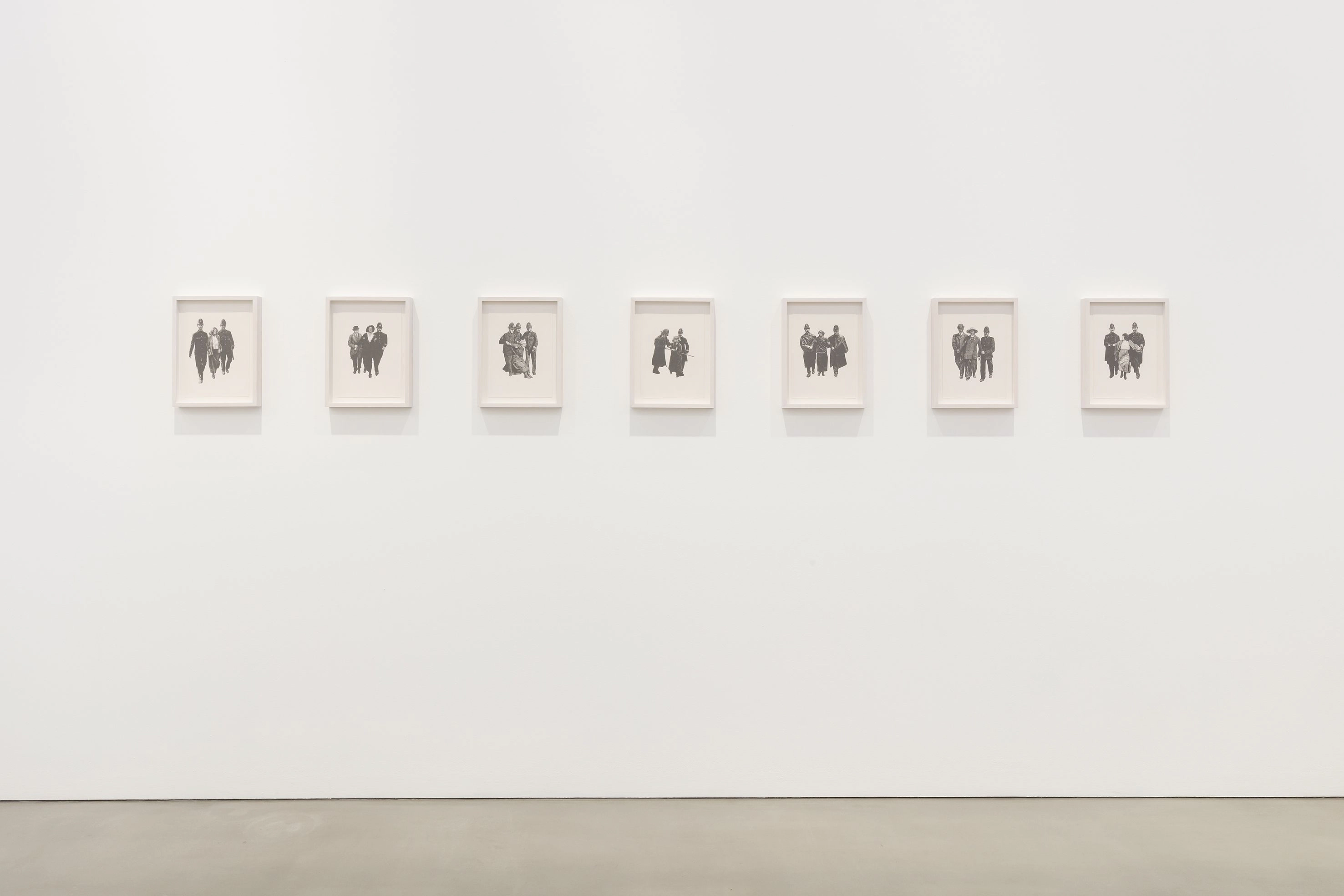
Arrest!, 2021
series of framed drawings, each: 29.7 × 21 cm
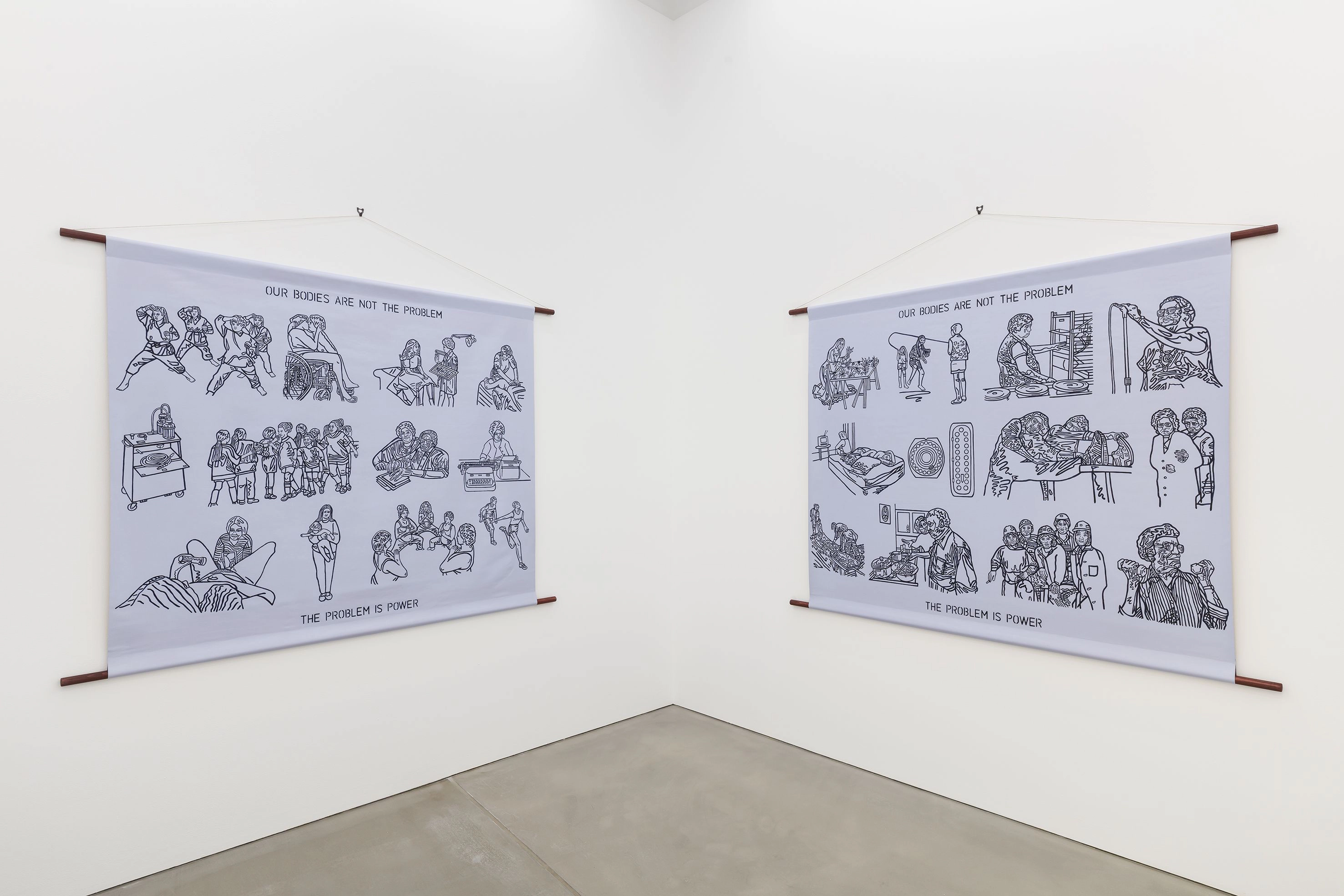
‘Our Bodies are Not the Problem’, exhibition view, Maureen Paley, London, 2022
Our Bodies are Not the Problem, The Problem is Power, 2022
acrylic on canvas with dowels
Our Bodies Are Not the Problem, the Problem is Power is part of an ongoing project with Glasgow Women’s Library (GWL) and is based on my research in their archives on feminist and queer health activism. It began as an installation in the Community Room of GWL in which I highlighted the relationship between ill health and structures of inequality, including racism, sexism and transphobia.
The three new paintings, which are intended to look like educational instructional objects, are based on imagery from the women’s health handbook Our Bodies, Ourselves. First published in the USA by the Boston Women’s Health Book Collective in 1970, the book resulted from Women’s Liberation workshops and consciousness raising groups, in which women gathered in order to learn about their bodies and how to demand their needs from a medical establishment that they viewed as paternalistic and condescending. It has gone on to be revised, republished, and repurposed around the world, adapted to different contexts by local feminist organisations and women’s health groups until today.
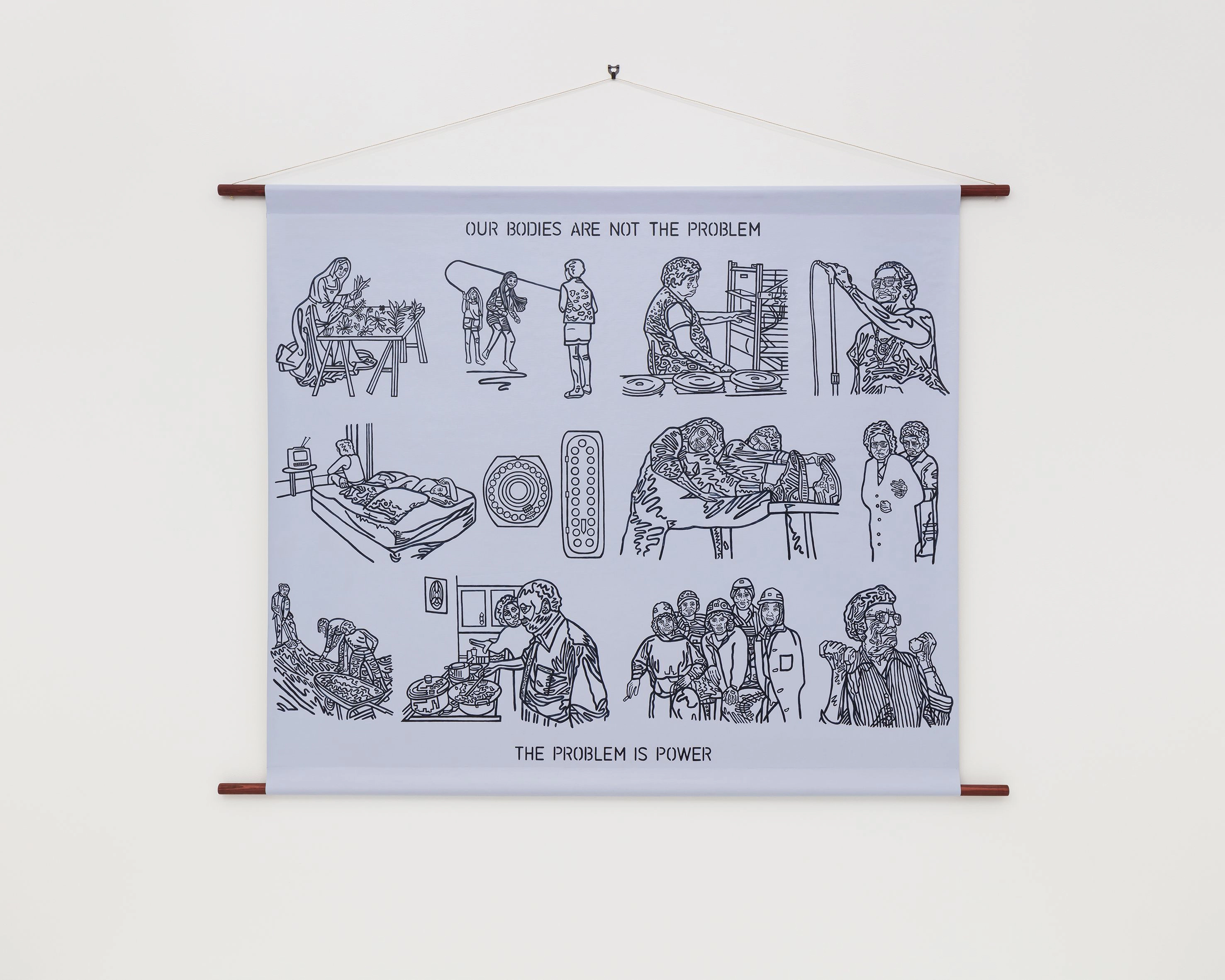
Our Bodies Are Not the Problem, 2022
acrylic on canvas with wooden dowels and string, 133 × 149.5 cm
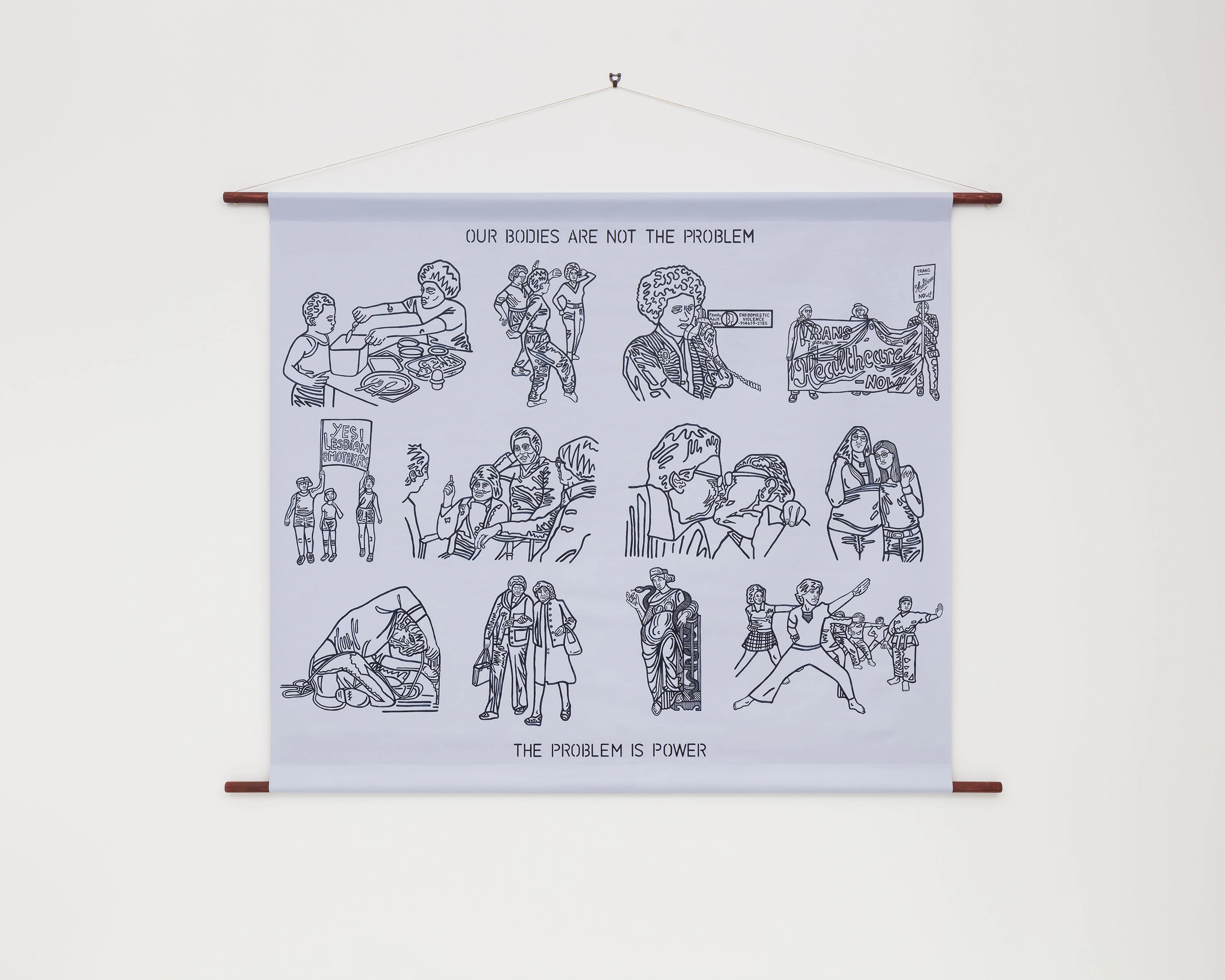
Our Bodies Are Not the Problem, 2022
acrylic on canvas with wooden dowels and string, 133 × 149.5 cm
Further Reading
‘Our Bodies are Not the Problem’, Maureen Paley, London, 2022
(view here)Art Monthly, ‘Rethinking History’, Olivia Plender interviewed by Laura Guy, No. 460 October 2022
(download)Frieze, ‘Olivia Plender Returns to Socialism’s Feminist Past’, Hettie Judah, September 2022
(read)e-flux Criticism review of ‘Our Bodies are Not the Problem’, Tom Jeffreys, November 2022
(read)